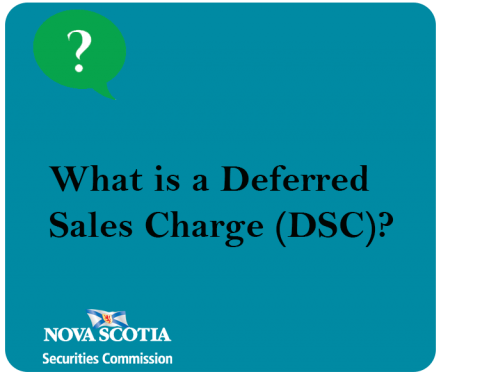Submitted by nsscadmin on

Following the CSA’s release of CSA Notice 81-330, last week we talked about embedded commissions. This week we’re going to expand upon one form of embedded commissions, Deferred Sales Charges (DSC).
DCS’s were also mentioned in 81-330. The Notice called for the prohibition of DSCs. The exact wording from the notice being:
to prohibit all forms of the deferred sales charge option, including low-load options (collectively, the DSC option) and their associated upfront commissions in respect of the purchase of securities of a prospectus qualified mutual fund
This likely means DSCs are going away. But what are they? That’s a question we received from an investor.
A DSC is also known as a back end load investors pay to a mutual fund manager. It is paid to an adviser by the mutual fund company. It is typically five per cent of the amount purchased. For example, if you were to purchase $1,000 of a mutual fund and the DSC was 5 per cent the mutual fund company would the adviser's firm who would then pay your adviser some portion of the $50.
As we said, investors may not pay an upfront cost, but it can cost you money when you withdraw money from the fund before a certain period of time. This is typically between five and seven years. If you withdraw any money before this then you may be charged a DSC redemption fee.
If you wait until the period of time has passed you may not have to pay the redemption fee. But each fund is different. This is considered to be one of the downsides of a DSC. You may not have to pay upfront, but to avoid paying the fees you’re locked into the fund for seven years.
When looking at investment options, you should ask your adviser about all of the costs of investing in the fund they recommend.
More information on the prohibition of DSC is scheduled to be released by the CSA in September, 2018.
